
06/29 – Up! (Ten Years After . . .) – Building Community-Based Equity
Brian McConnell
Brian McConnell
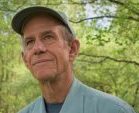
Brian McConnell
This segment of Notes from the Field reflects the shared experience of a small band of reflective practitioners originating in Roanoke, Virginia and interfacing with each other as participants, along with some 300 other such teams from around the world, in the Presencing Institute’s recently launched, “Societal Transformation Lab”. Drawing from a set of theoretical frameworks sharing parallels related to “consciousness” which include Integral, Theory U, the Systems View, and Spiral Dynamics; “Showing Up!” recounts the group’s efforts thus far – from the leading edge of organizational learning.
Both the current global economy and the legal order embedded in it are manifestly unsustainable, and a new ecolegal order-based on ecological and legal literacy, fair sharing of the commons, civic engagement, and participation – is urgently needed (Capra & Mattei, 2015, p. xii).
Ten years after what “many economists” consider the “most serious financial crisis” to occur “since the Great Depression of the 1930s” (Financial crisis of 2007-2008, 2019), massive sectors of our planet’s (particularly “third world“) citizenry continue to subsist as little more than human livestock within a globalized capitalist economy routinely extracting (natural) wealth in a corporate endgame of “race to the bottom“, “peak oil“, economics (often) at the behest of more highly developed, gross consuming, “first world” countries which, though unleashing ruin on the planet’s overall ecological well-being, persist nevertheless in contributing to a perverse accumulation of financial gain for a minuscule class of ultra-rich elitists (e.g. “The One Percent“).
First, the ‘good news’ . . .
Thus, and not otherwise knowing ‘how’ or ‘where’ to best begin . . . the ‘good’ news is, with an unfolding over the last six decades or more of the information age’s ‘third’ and ‘fourth’ industrial revolutions, humankind currently commands sufficient productivity to eradicate global starvation (Green, 2012). In fact, humanity to this point as a whole, has never commanded either greater productive nor communication capacities.
The ‘bad’ news? . . . the approaches presently in use employing capital, utilizing natural resources, and distributing production, don’t necessarily actualize that end. Disconcertingly, this paradox serves as a poignant indicator of 1) just how widescale our global (i.e. ‘neoliberal’?) dysfunction is—and, 2) how disparaging little it contributes to supporting the overall health and well-being of immense populations including first world nations like the U.S. which, over the last twenty years has seen a 30% increase in its overall rate of suicides (Fox, 2018). Also, and pointing to a localized concern in our immediate region (see – “Governor Ralph Northam visits Roanoke . . .”), opioid related deaths across the nation continue to spiral upward at epidemic rates (Opioid deaths.jpg, 2018).
What’s more, and though our best collective efforts (or lack thereof) factor into the onset of a ‘sixth mass extinction’ unparalleled “in 65 million years” (Danner, 2015), and despite the adoption of metrics suggesting otherwise, actual outcomes nonetheless only marginally impact world poverty overall (United Nations, 2015). It’s for these reasons however that three particularly significant ‘breakthroughs’ occurring over the last ten years may serve to inform the means by which global society can, 1) sufficiently ‘initiate’ processes to scale structural realignment and, 2) effectively ‘shift’ collective consciousness to better facilitate the adaptive change necessary to curb the pace of planetary decimation and supplant traditionally extractive methodologies with generative ecosystems (see Fig. 1).
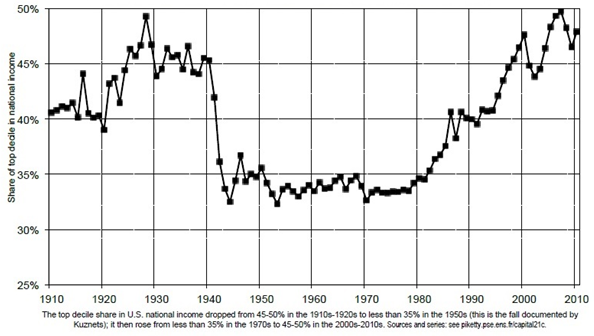
Figure 1 – Income Inequality in the United States, 1910-2010 (Piketty, 2014, p. 24)
A Marriage of “Sense and Soul’! – Reconciling Science with Spirituality
Likewise, but where exploring topics related to the Commons have generally entailed a historical trajectory involving the translation of “power” and “wealth” in respect to varying constructs including “rights”, “value(s)”, “justice”, and “law” ̶ even today, one’s focus can be so narrowly commanded and subsequently restricted by both the conventional verbiage and traditional protocols accompanying these same models as to prove disparagingly ineffective in impacting socioeconomic actualities. Similarly, but concerning longer-run (e.g. paradigm) shifts occurring across ‘culture’ over time, JP Jakonen extended a particularly relevant analogy in “Beyond Postmodern Spirituality” (2009) citing Charles Taylor and querying; ‘why was it virtually impossible not to believe in God in say, 1500 in our Western society, while in 2000 many of us find this not only easy but even inescapable?’ (Jakonen, 2009).
Consequently, and taking justice (or—“justness”) for example, it’s especially intriguing how Jakonen, from an “integral” perspective (Jakonen, 2009) and Capra, with his “systems view” (Capra & Mattei, 2015), both share and subsequently express, comparable appreciations for the centrality of kósmos (see linked reference) ̶ an ancient Greek term alluding to notions of “lawful order”, “government”, “world”, and “universe” among others (κόσμος, 2018).
From the beginning of Greek philosophy in the sixth century B.C.E., philosophers viewed the world as a “kósmos”, an ordered and harmonious structure, more a living organism rather than a mechanical system (Capra & Mattei, 2015, p. 31).
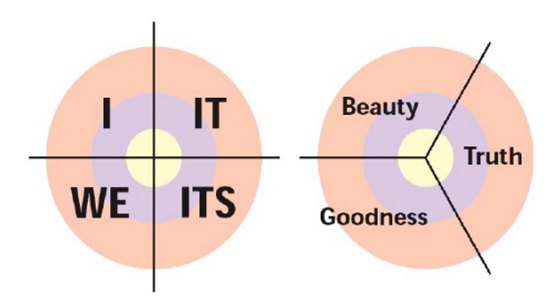
Figure 2 – The Quadrants (Wilber, 2006, p. 28)
Similarly, one of the central tenets underlying Ken Wilber’s, The Marriage of Sense and Soul: Integrating Science and Religion recounts how our developmental transition from antiquity to modernity through postmodernity has entailed a heartrending displacement of the “dignity of modernity” with the “disaster of modernity”.
The ancient holistic vision of the world as a “kósmos”, of the Earth as a generous gift of God to humankind as a whole and abundant commonwealth collectively accessible by all, was replaced by a humanist emphasis on the individual and human reason, which resulted in a mechanistic legal vision known as rationalist natural law (Capra & Mattei, 2015, p. 45).
Thus, where the Great Chain of Being has likely been envisaged, in one way or another, for time immemorial as “a hierarchical structure of all matter and life” (Great chain of being, 2019), it’s fascinating how three “properties of being” originating within Greek philosophy (e.g. “science (truth), the arts (beauty) and religion (goodness)”) otherwise known as “transcendentals”, constitute the core of Ken Wilber’s AQAL model (see Fig. 2) (Transcendentals, 2018).
There is a simple way of referring to these three “value spheres” of ‘morals’, ‘science’, and ‘art’: they are the Good, the True, and the Beautiful. (These terms were first introduced on a large scale by the Greeks, who were, in this regard, one of the precursors of modernity) (Wilber, 1998, p. 49).
Consequently, and over the last three decades or more, Ken Wilber has forged the unfolding of his integral model as a two-by-two matrix comprised of four distinct but (integrally) interwoven domains or quadrants reflected as an Upper left-hand (subjective, internal/individual), first-person – “I”, a Lower left-hand (intersubjective, internal/collective), second-person – “We”, and a Right-hand (objective/interobjective, external individual/ collective), third-person – “It” and “Its” (see Fig. 2). Similarly, it’s important to note these 1st, 2nd, and 3rd person pronouns exist universally across “all major languages” as “dimensions” of one’s “own being” and thus ̶ “at each and every moment” of experience, can be said to exemplify “the Beautiful, the Good, and the True” as expressions of “self, culture, and nature” [emphasis added] (Wilber, 2006, p. 27-28).
In this same regard then, the Good (Lower left-hand quadrant – LL) reflects, or otherwise “refers to ‘morals’, to ‘justness’, to ‘ethics’, to how you and I interact in a fair and decent fashion, both with each other and with all other sentient beings [quotation marks and italics added] (Wilber, 1998, p. 49). Moreover, “the governing principles of . . . democratic nations in today’s world are in fact the principles of modernity ̶ that is, the values of the liberal Western Enlightenment” including “equality, freedom, and justice; representational and deliberative democracy; the equality of all citizens before the law, regardless of race, sex, or creed; political and civil rights (freedom of speech, religion, assembly, fair trial, etc.). Thus, it’s these same “values” and “rights” which Wilber subsequently refers to “as the dignity of modernity” (Wilber, 1998, p. 44).
So, What Ever Happened to the “Invisible Hand”?
During the past three decades, a radically new paradigm has emerged at the forefront of science.4 At the heart of this change of paradigms from a mechanistic to a holistic and ecological worldview we find a profound change of metaphor: from seeing the world as machine to understanding it as a network (Capra & Mattei, 2015, p. 3-4).
Yet, and along these same lines, in respect to “(i)nternational historians” who link the Enlightenment to an onset of the scientific revolution “in the 1620s” (Age of Enlightenment, 2019), Francis Bacon (1561-1626) who’s “been called the father of empiricism” is a key figure impacting the modern era’s socioeconomic order (Francis Bacon, 2019). Consequently, but from antiquity, where
the goal of natural philosophy had been to achieve wisdom ̶ to understand the natural order and live in harmony with it. In the seventeenth century, however, this attitude changed dramatically. As the organic view of nature was replaced by the metaphor of the world as a machine, the goal of science became a quest for knowledge that could be used to dominate and control nature (Capra & Mattei, 2015, p. 39).
Similarly, but where the “sixteenth century had seen a deep scholarly debate among Spanish jurists about the legitimacy of the conquest of South America, no similar debate took place a century later during the colonization of North America”. Consequently, John Locke’s (1632-1704) influence “as the Father of Liberalism” (John Locke, 2019) in concert with “northern European legal rationalism”, had already exerted a “defining impact” in asserting “the fundamental right of the human mind and of science to dominate both nature and humans still in the “natural state”. Both the exploitation of land and slavery ̶ ownership of people whose human subjectivity was denied ̶ had found a rational justification” (Capra & Mattei, 2015, p. 67).
Furthermore, and to more fully appreciate both the scope and magnitude of this present shift of societal paradigm, it’s within this historical context of the last four hundred years that findings within just the last decade or so, are serving to challenge and subsequently redefine the practical suitability (e.g. ‘sustainability’) of the very tenets upon which our current global (Capitalist) system has arisen. For example, and where the “Scottish economist” and “moral philosopher” Adam Smith (1723-1790) generally enlisted the term “invisible hand” (Adam Smith, 2019) in reference to “the unintended social benefits of an individual’s self-interested actions” ̶ “(c)ontrary to common misconceptions, (he) did not assert that all self-interested labour (sp) necessarily benefits society, or that all public goods are produced goods desired by their neighbours (sp)” [italics added] (Invisible hand, 2019).
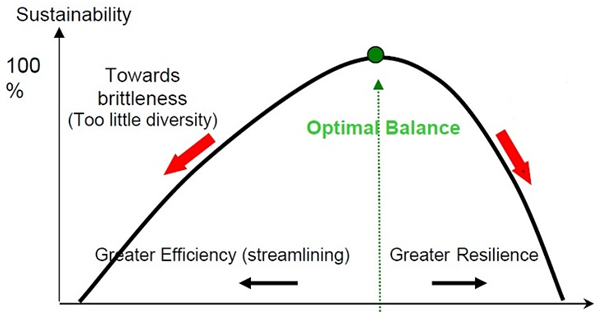
Figure 3 – Sustainability Curve (Lietaer, Ulanowicz, Goerner, & McLaren, 2010, p. 93)
In fact, and while the “tragedy of the commons” reflects “a situation in a shared-resource system where individual users acting independently according to their own self-interest behave contrary to the common good of all users by depleting or spoiling that resource through their collective action” [italics added] (Tragedy of the commons, 2019), “self-interest” nevertheless ̶ produces an “unwanted result” (Invisible hand, 2019). Consequently, in 2009, and as “the first woman to receive the prestigious Nobel Memorial Prize in Economic Sciences” (Elinor Ostrom, 2019), Elinor Ostrom’s efforts effectively proved that “members of a community with access to a common resource” could actually “co-operate or regulate” their respective behavior in a manner where those resources were exploited “prudently without collapse” (Tragedy of the commons, 2019).
Similarly, former Belgium central-banker Bernard Lietaer (Feb. 7, 1942 – Feb. 4, 2019) pursuits with colleagues around this same time found “sustainability of any complex flow system” could “be measured with a single metric . . . of its structural diversity and interconnectivity” (see Fig. 3) and subsequently reflected its sustainability, vitality, and adaptivity as a balance between “efficiency and resilience”. The group’s research in this respect heralded an “urgent message” from nature “that the monoculture of national currencies . . . generates structural instability in our global financial system”, thus appropriating greater “diversification” in our utilization of currencies (Lietaer, Ulanowicz, Goerner, & McLaren, 2010, p. 90).
Adopting ‘Meta-Models’ to Build Community-Based Equity!
As a 90 second video (“Our prototype . . .”) produced in December to showcase the group’s proposed focus for the Presencing Institute prior to launch of its “Societal Transformation Lab” conveyed however; although we’d envisioned an operating system spanning five major sectors including “Health”, “Education”, “Food”, “Finance”, and “Management” (see Fig. 4), and as this piece has further emphasized, “we’re especially intrigued” moving forward “by the role of relational governance and justice” in our adoption of an Awareness-Based Collective Action (ABC) approach (see also – Collective action theory) [quoted from video approx. 0:38 – 0:55] (McConnell, 2018).
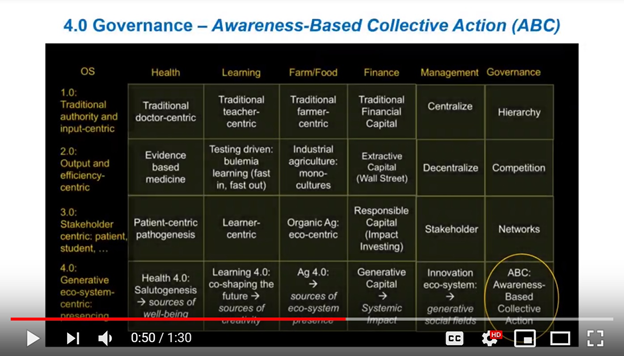
Figure 4 – Our prototype presentation in 90 seconds (McConnell, 2018)
In closing, and reflecting on this same process, one thing is certain; our shared experience within such a crucial context promises to be an exhilarating ride for those accepting its challenge . . .
References
Adam Smith. (2019, February 28): In Wikipedia, The Free Encyclopedia. Retrieved 22:00, March 6, 2019, from https://en.wikipedia.org/w/index.php?title=Adam_Smith&oldid=885489939
Age of Enlightenment. (2019, March 4): In Wikipedia, The Free Encyclopedia. Retrieved 21:03, March 5, 2019 from https://en.wikipedia.org/w/index.php?title=Age_of_Enlightenment&oldid=886186445
Capital in the Twenty-First Century. (2019, January 17): Capital in the Twenty-First Century. In Wikipedia, The Free Encyclopedia. Retrieved 22:30, January 29, 2019, from https://en.wikipedia.org/w/index.php?title=Capital_in_the_Twenty-First_Century&oldid=878927537
Capra, F., & Mattei, U. (2015): The Ecology of Law: Toward a Legal System in Tune with Nature and Community. Oakland, CA; Berrett-Koehler Publishers, Inc.
Danner, Chas (2015): The Sixth Mass Extinction May Actually Be Here. New York|Intelligencer (Life on Earth), June 20, 2015. Retrieved from http://nymag.com/intelligencer/2015/06/sixth-mass-extinction-may-actually-be-here.html
Elinor Ostrom. (2019, March 5): In Wikipedia, The Free Encyclopedia. Retrieved 15:59, March 7, 2019, from https://en.wikipedia.org/w/index.php?title=Elinor_Ostrom&oldid=886318515
Financial crisis of 2007–08. (2019, February 20): In Wikipedia, The Free Encyclopedia. Retrieved 21:16, February 20, 2019, from https://en.wikipedia.org/w/index.php?title=Financial_crisis_of_2007%E2%80%932008&oldid=884182448
Fox, Maggie (2018): Suicide rates are up 30 percent since 1999, CDC says, NBC News|Health News, June 7, 2018/Updated June 9, 2018. Retrieved from https://www.nbcnews.com/health/health-news/suicide-rates-are-30-percent-1999-cdc-says-n880926
Francis Bacon. (2019, March 3): In Wikipedia, The Free Encyclopedia. Retrieved 15:17, March 6, 2019, from https://en.wikipedia.org/w/index.php?title=Francis_Bacon&oldid=885902905
Invisible hand. (2019, February 19): In Wikipedia, The Free Encyclopedia. Retrieved 22:27, March 6, 2019, from https://en.wikipedia.org/w/index.php?title=Invisible_hand&oldid=884144920
Jakonen, J.P. (2009): Beyond Postmodern Spirituality: Ken Wilber and the Integral approach. Scripta Instituti Donneriani Aboensis, Vol. 21, p. 92-109. Retrieved from https://journal.fi/scripta/article/view/67345
John Locke. (2019, February 27): In Wikipedia, The Free Encyclopedia. Retrieved 16:18, March 6, 2019, from https://en.wikipedia.org/w/index.php?title=John_Locke&oldid=885274503
Great chain of being (2019, February 15): In Wikipedia, The Free Encyclopedia. Retrieved 22:11, February 27, 2019, from https://en.wikipedia.org/w/index.php?title=Great_chain_of_being&oldid=883418839
Green, Duncan (2012): Ending world hunger is possible ̶ so why hasn’t it been done?. The Guardian. February 15, 2012. Retrieved from https://www.theguardian.com/commentisfree/2012/feb/15/ending-world-hunger
κόσμος. (2018, September 2): Wiktionary, The Free Dictionary. Retrieved 18:45, February 9, 2019 from https://en.wiktionary.org/w/index.php?title=%CE%BA%CF%8C%CF%83%CE%BC%CE%BF%CF%82&oldid=50249363.
Lietaer, B., Ulanowicz, R., Goerner, S., & McLaren, N. (2010): Is Our Monetary Structure a Systemic Cause for Financial Instability?. Journal of Futures Studies, Vol. 14, No. 3, March 2010, p. 89-108. Retrieved from http://www.lietaer.com/images/Journal_Future_Studies_final.pdf
McConnell, Brian (2018): Our prototype presentation in 90 seconds (2018, December 08). Produced and submitted to the Presencing Institute for consideration of group inclusion in the “Societal Transformation Lab”. Retrieved March 07, 2019, from https://youtu.be/HvvxJBxDPUY
Opioid deaths.jpg. (2018, September 5): Wikimedia Commons, the free media repository. Retrieved 14:44, March 6, 2019 from https://commons.wikimedia.org/w/index.php?title=File:US_timeline._Opioid_deaths.jpg&oldid=318701663.
Piketty, Thomas (2014): Capital in the Twenty-First Century. Cambridge: The Belknap Press of Harvard University Press, 2014. Print.
Tragedy of the commons. (2019, March 6): In Wikipedia, The Free Encyclopedia. Retrieved 00:42, March 7, 2019, from https://en.wikipedia.org/w/index.php?title=Tragedy_of_the_commons&oldid=886459385
Transcendentals (2018, May 19): In Wikipedia, The Free Encyclopedia. Retrieved 16:45, March 3, 2019, from https://en.wikipedia.org/w/index.php?title=Transcendentals&oldid=841994578
United Nations (2015): What progress has been made in ending global poverty?. United Nations – Sustainable Development Goals. July 30, 2015. Retrieved from https://www.un.org/sustainabledevelopment/blog/2015/07/what-progress-has-been-made-in-ending-global-poverty/
Wilber, Ken (1998): The Marriage of Sense and Soul: Integrating Science and Religion, New York, NY: Random House.
Wilber, Ken (2006): Introduction to the Integral Approach (and the AQAL Map). http://www.kenwilber.com, Retrieved from http://www.kenwilber.com/Writings/PDF/IntroductiontotheIntegralApproach_GENERAL_2005_NN.pdf
About the Author
Brian McConnell has worked in varying capacities with the underpinnings of Integral thought and theory, primarily in the fields of Education and Psychology since first introduced to Ken Wilber’s, “Eye to Eye” in 1997. Consequently, much of this background in reflective practice stems from personal study in Theravada Buddhism with Thanissaro Bhikkhu at Metta Forest Monastery. He’s also one of a small group of practitioners from Roanoke, Virginia who, in hosting a local hub for MIT’s initial u.lab in January of 2015, became co-founding directors of Roanoke Community Ecosystems, a 501(c)(6) nonprofit corporation.
